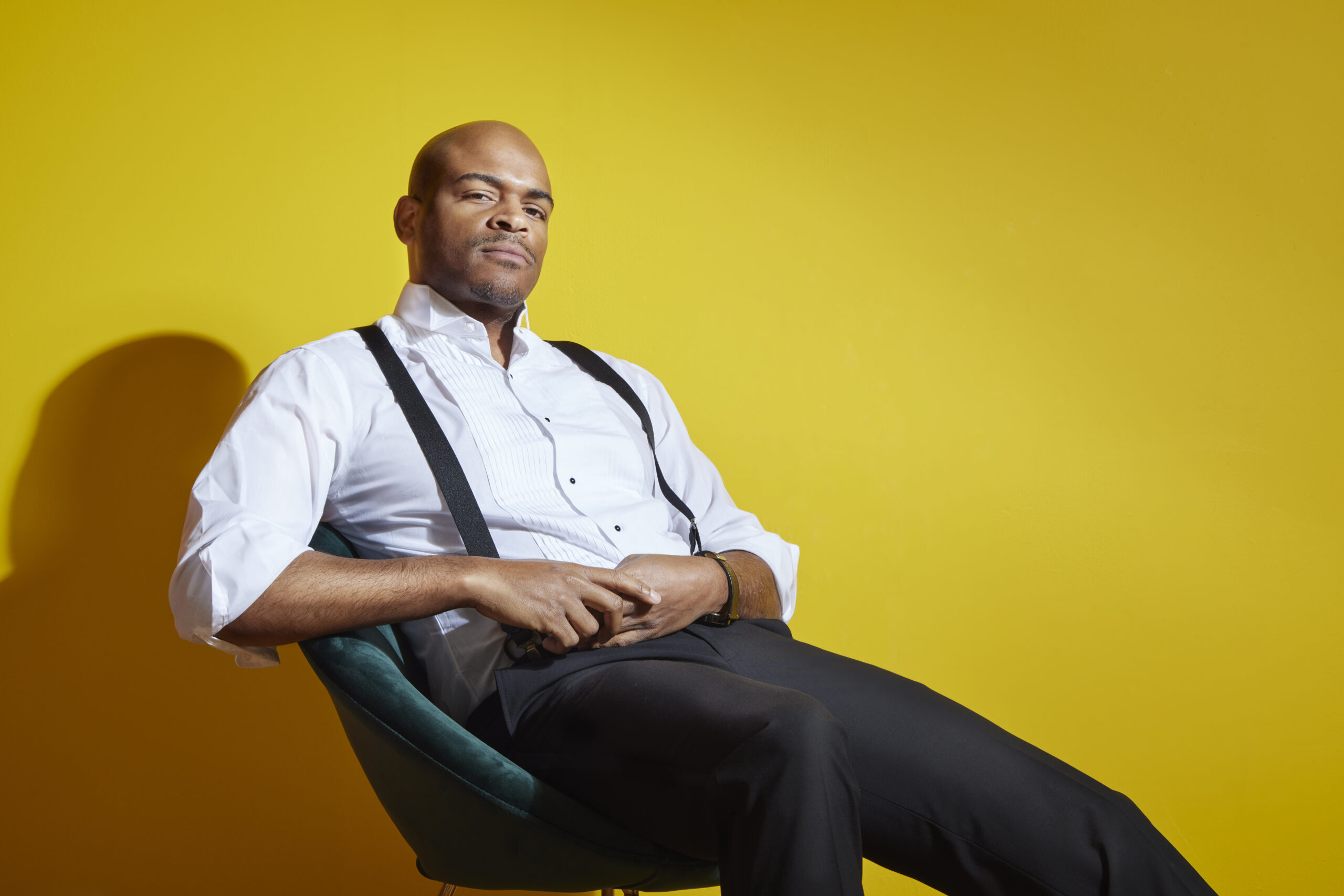
By Marc W. Polite
Good afternoon, my readers. As I mentioned in a previous post, 2025 is a year of broadened ventures. Many of you notice that I showcase writers on this site. Today, we are speaking to an actor. On this first theater profile, we hear from Jermaine Alexander. Below, he discusses his upcoming features, and projects in development. Be on the lookout for the forthcoming “Theater While Black” – synopsis below.
Theatre While Black, a 7 episode docu-series , is a theatrical exploration of Danny Glover and Ben Guillory’s black box theatre company. It recounts a history of friendship, struggle and perseverance. After the groundbreaking success of The Color Purple (1985), actors Danny Glover and Ben Guillory formed a theater company that would proceed to stand the test of fame, financial hardship and a global pandemic.
Polite On Society: For those who want to get familiar with your work, who is Jermaine Alexander?
Jermaine Alexander: Great Question. It’s complex. I am a lot of things. I’m an all-around learner and artist. I’m a person who seeks understanding and community wherever I go. As I invite and encourage all walks of life into my space to have a fuller human experience, I’ve found that people have a tendency to be rigid in interacting with people different from them. Granted, people have their boundaries but there are many instances where prejudice supersedes the environment/moment. So, I challenge people to push through the uncomfortableness without judgement of yourself and the other person. So my love for human interaction has fueled my passion for acting and entertainment overall.
POS: Can you tell our audience about the Robey Theater Company?
JA: I call the Robey Theatre Company my Harlem Renaissance. It’s where I get my cultural experience straight with no chaser. It’s a non-profit Theater company founded 31 years ago by Ben Guillory and Danny Glover who both worked on the original Color Purple together. Like myself they both were raised in Northern California, Bay Area. The mission statement is to develop and produce plays about the global Black experience, and to interpret black classics.
POS: Productions that deal with issues of race can often be deemed controversial. Why is it important to support a theater company that openly discusses issues from a Black perspective?
JA: It’s interesting that the people who deem race to be controversial are usually the ones who may be benefiting from this indoctrination of an idea called race. I question those who truly see it controversial. But it’s great for conversation. This kind of work is where the real truth lies. Theatre is a place where people gather to see the truth. So, if the truth is controversial we might be on to something good. So supporting Black theater companies like The Robey, gives Black people a voice to be heard and seen and a space to critically converse about unique and nuanced opinions not explored in other spaces. It’s only controversial because this society is socialized to overlook it’s black people and the struggles that we go through that makes it difficult for some not to be able to compete within this society.
POS: Is there a timeline on the expected release of “Theater While Black”?
JA: My series Theater While Black is still looking for a home. I’m in talks with a few outlets and I hope to make a decision in the next couple of months. In the meantime you can listen to the soundtrack on YouTube. Search ‘Theatre While Black’. Follow the Artists on Spotify or wherever you listen to your music. I hand selected these artists and they all have unique voices and theirs ways of expression exemplify the Black experience which is ultimately what the Robey Theatre Company is to me.
POS: Do you have any forthcoming films or TV shows you will be in?
JA: I’m doing a lot of auditioning and trying to find the right project to collaborate on. I just completed directing a short horror film titled FRITCHI MANOR. That will be out in the festival circuit soon. I’ve been training in BKF (Black Karate Federation) and Lindy Hop Swing and Vernacular Jazz which are uniquely Black American art forms that have lost its way from our community. If you can do The Dougie you should be aware of The Suzy Q and a Swing Out. So I’ve found joy in preserving and protecting this piece of our history as well.
